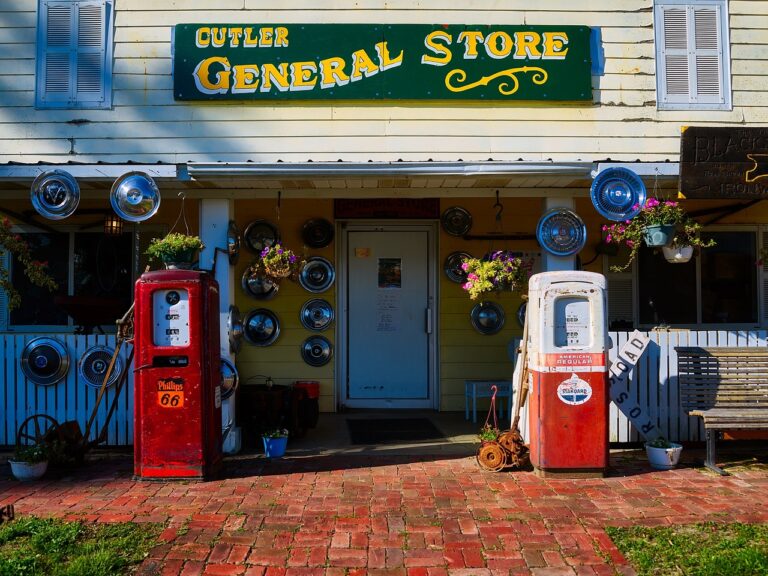The Role of Nostalgia Marketing in Eliciting Emotional Responses
Nostalgia holds a unique power to evoke strong emotional connections within individuals. It taps into our personal memories and experiences, allowing us to relive past moments that are imbued with sentiment and meaning. By leveraging nostalgia in marketing strategies, brands can establish a deep bond with consumers based on shared emotions and experiences, fostering a sense of familiarity and trust.
When consumers encounter nostalgic content, whether through visuals, music, or storytelling, it can transport them back to cherished moments from their past. This rekindling of positive emotions can significantly impact their perception of a brand, creating a sense of attachment and loyalty. By harnessing the emotional resonance of nostalgia, companies can create authentic connections with their audience, ultimately influencing consumer behavior and driving engagement.
• Nostalgia taps into personal memories and experiences
• It allows individuals to relive past moments imbued with sentiment
• Brands can establish deep bonds with consumers through nostalgia
• Nostalgic content can transport consumers back to cherished moments from their past
• Positive emotions rekindled by nostalgia can impact perception of a brand
The Psychology Behind Nostalgia Marketing
Nostalgia marketing taps into consumers’ emotions and memories, creating a powerful connection that can influence their purchasing decisions. By evoking feelings of nostalgia, brands can trigger a sense of comfort, happiness, and familiarity in consumers, making them more likely to engage with the product or service being offered. This emotional response can lead to increased brand loyalty and customer retention, as individuals associate positive emotions with the brand.
Furthermore, nostalgia marketing can also leverage the psychological phenomenon of “reminiscence bump,” where memories from adolescence and early adulthood are particularly vivid and influential. By incorporating elements from the past that resonate with these formative years, brands can create a deep emotional bond with consumers, prompting them to feel a sense of connection and belonging. This psychological strategy can be a powerful tool for marketers looking to establish long-term relationships with their target audience and drive sales through emotional engagement.
How Nostalgia Can Influence Consumer Behavior
Nostalgia has a profound impact on consumer behavior, triggering emotions and memories that can influence purchasing decisions. Brands often leverage nostalgia by tapping into sentimental moments from the past, connecting with consumers on a deeper emotional level. By evoking feelings of nostalgia, companies can create a sense of familiarity and comfort, fostering loyalty and trust among customers.
Moreover, nostalgia marketing can enhance brand recognition and recall, as consumers are more likely to remember products or services that are linked to positive memories from their past. This emotional connection can lead to increased brand engagement and customer retention, as individuals are drawn to the feelings of happiness and nostalgia associated with a particular brand or product. As a result, incorporating nostalgia into marketing strategies can be a powerful tool for influencing consumer behavior and driving sales.
How does nostalgia influence consumer behavior?
Nostalgia can evoke positive emotions and memories from the past, leading consumers to feel a sense of comfort and familiarity. This emotional connection can influence their purchasing decisions.
Can nostalgia marketing be effective in today’s fast-paced world?
Yes, nostalgia marketing can be highly effective as it taps into consumers’ desire for connection and emotional resonance. By leveraging nostalgic elements, brands can create a sense of authenticity and build stronger relationships with their audience.
What are some examples of successful nostalgia marketing campaigns?
Some examples include Coca-Cola’s “Share a Coke” campaign, which personalized bottles with popular names, and Nintendo’s re-release of classic gaming consoles like the NES and SNES. These campaigns resonated with consumers by tapping into their fond memories of the past.
How can businesses incorporate nostalgia into their marketing strategies?
Businesses can incorporate nostalgia by using retro designs, vintage advertisements, or reviving old products with a modern twist. By evoking feelings of nostalgia, brands can create a unique and memorable experience for consumers.
Is there a risk of overusing nostalgia in marketing?
While nostalgia can be a powerful tool, overusing it can come across as inauthentic or manipulative. It’s important for businesses to strike a balance and ensure that their nostalgic marketing efforts are genuine and resonate with their target audience.







